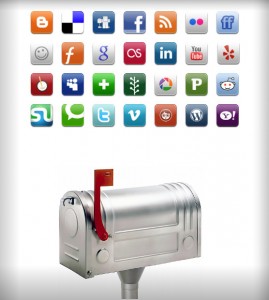 As Google’s algorithms become more sophisticated and other digital marketing mediums are flooded with ads direct mail proves to be breath of fresh air. This post will cover recent statistics on why direct mail has stood the test of time and why it will continue to do so well past 2012.
As Google’s algorithms become more sophisticated and other digital marketing mediums are flooded with ads direct mail proves to be breath of fresh air. This post will cover recent statistics on why direct mail has stood the test of time and why it will continue to do so well past 2012.
As technology progresses it creates a strange history of what does and does not become obsolete. While beepers, camera film, yellow pages, and CD players are shifting towards extinction, other old practices like newspapers, direct mail, and town hall meetings are still thriving. There is a reason direct mail advertisements continue to prosper in a time that consumer’s hands are glued to their iPhones.
Consumer preference has always been the determining factor in a products life cycle. While there is a significant portion of people who read the newspaper electronically many still prefer old fashioned ink and paper. E-papers are easier to attain, cheaper, and updated in real time yet they are still not preferred by a very large group of people. Marketers sometimes underestimate how important comfortability can be to consumers.
In July of 2011 Journal of Marketing released the results of a research project on multi-channel marketing. They tested telephone, e-mail, and direct mail for the service department of a large automotive dealership. The research found that compared to phone and email, customers accepted twice the amount of direct mail before spending levels started to decrease. The consumers found the physical mail to be less intrusive and liked have the convenience of reading it at their own discretion.
According to research by Mail Print, 85% of consumers sort through and read selected pieces of mail every day while the other 15% let it sit for two or more days at a time. 75% of consumers are saying that they are examining their mail more closely in the recent months to search for coupons and discounts. 40% of consumers say that they have tried a new business after receiving direct mail, and 70% have renewed relationships with businesses that they had previously ceased using.
A recent post by Eric Ward with SearchEngineLand outlined various linking predictions for 2012. It basically pointed out how search engines algorithms are becoming more sophisticated, nullifying certain link building practices like directories, and how social media will play a larger role in keyword placement. He concluded this post by stating people will realizing the futility of relying on search engines for all their traffic and will end up using other sources such as QR codes. This is coming from a link building strategist. SearchEngineWatch posted an article titled, “SEO Apocalypse” pointing out some of the same factors. It is apparent how these channels are beginning to shift to social media and other avenues.
There was a point in time when physical mail was one of the few marketing channels companies could use and mail boxes were full of advertisements. As a result many mail pieces became whitewash purely because of the quantity of offers. That is no longer the case for mail, but is so for digital advertising. Pandora listeners hear constant quips, YouTube viewers are bombarded with ads, and Google’s display network reaches all corners of the web. Mail may be one of the oldest forms of marketing but could also be considered one of the freshest in our digital age. It is a medium that has been holding strong since 1872 and will continue to do so well past 2012.
